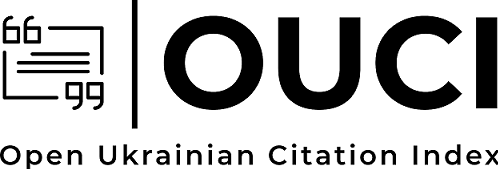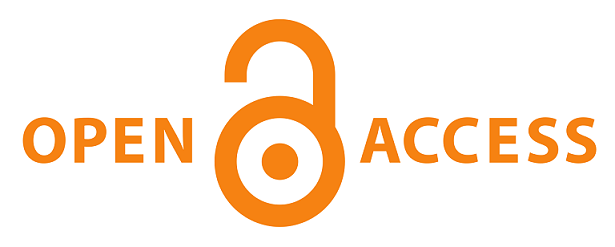TO THE HISTORY OF THE UKRAINIAN NOBILITY OF THE FIRST QUARTER OF 19 CENTURY: KATERYNA YU. GALAGAN’S LETTER TO HER GRANDCHILDREN PETRO AND PAVLO (1812)
DOI:
https://doi.org/10.28925/2524-0757.2020.1.16Keywords:
family epistolary, Ukrainian nobility, Galagan, private lifeAbstract
The publication of the epistolary of the Ukrainian noble families helps to understand correlation between mental stereotypes and individual strategies in the activities of this state. The Galagan family archive allows to analyse both epistolary complexes and individual letters. The aim of the article is to publish Kateryna Yu. Galagan’s letter, before marriage — Daragan, niece of Oleksii Hryhorovych and Kyryl Hryhorovych Rozumovskyi, to grandchildren Petro and Pavlo, descendants, by paternal line, of Pryluky colonel Hnat I. Galagan. The content of the letter illustrates the situation of the family’s everyday life, when K. Yu. Galagan blamed her grandchildren for, in her opinion, inappropriate behaviour during their stay in St. Petersburg. Such a private, casual situation helps to examine collective through the individual one. The letter illustrates the patterns of life of the noble community in the early 19th century. It highlights the conflict between two generations of Ukrainian nobility. The older generation still retained a more moderate tradition of Cossack officers, and the younger inherited from the imperial nobility a habit of aristocratic luxury. This conflict is revealed in the letter through the worldview of Kateryna Yu. Galagan, a person of strict temperament. Due to this, the history of family life is psychologically motivated. The oral language of the author of the text is reproduced in writing by another person (scribe). This enables historical and linguistic researches. High informative letter makes it a valuable resource in the field of the history of everyday life, historical anthropology, historical biography.
Downloads
References
Abrosymova, S.V. (2009). Epistoliarni dzherela v yikh istorychnomu pobutuvanni ta doslidnytskomu areali. Dnipropetrovskyi istoryko-arkheohrafichnyi zbirnyk, 3, 57–115 [in Ukrainian].
Budzar, М. М. (2016). Mistse zhinky v simeinii istorii ukrainskoho panstva: chotyry Kateryny rodyny Halahaniv [Female Role in Family History of Ukrainian Nobility: Four Catherine of Galagan’s Family]. Kyivski istorychni studii — Kyiv historical studies, 1, 115–126 [in Ukrainian].
https://doi.org/10.28925/2524-0757.2016.1.15
Bessmertnyi, Yu. L. (1996). Chastnaia zhizn: stereotipnoie i individualnoie. V poiskakh novykh reshenii. Chelovek v krugu semi. Ocherki po istorii chastnoi zhizni v Yevrope do nachala Novogo vremeni [Private Life: The Stereotipical and the Individual in Human Behaviour. In Search of New Solutions]. M., pp. 11–12 [in Russian].
Budzar, M. (2018). Dvorianska spilnota Livoberezhnoi Ukrainy v ego-dokumentakh z arkhivu Halahaniv. Istorychni dzherela v ukrainskomu informatsiinomu i osvitniomu prostori: veryfikatsiia ta interpretatsiia (O. O. Salata, Ed.). Vinnytsia: «Tvory» [in Ukrainian].
Galagan, G. P. (1896). Rod Galaganov. 25-letie Kollegii Pavla Galagana v Kieve, ( A. Y. Stepovych, Ed.) [in Russian].
Kurach, S. (2019). Rodynni portrety Rozumovskykh — Darahaniv u zibranni Chernihivskoho oblasnoho muzeiu imeni Hryhoriia Halahana. Sivershchyna v istorii Ukrainy, 12, 404–407 [in Ukrainian].
Lazarevskyi, A. M. (1875). Ocherky Malorossyiskyi familii. Galagany. Russkii arkhiv, 1, 318–325 [in Russian].
Papakin, H. (2004). Arkhiv Skoropadskykh: familni arkhivy ukrainskoi elity dr. pol. XVII–XIX st. ta arkhivna spadshchyna rodu Skoropadskykh. Kyiv [in Ukrainian].
Wal, van der M., Rutten, G. (2013). Ego-documents in a Historical-Sociolinguistic Perspective. (M. van der Wal, G. Rutten, Eds.). Touching the Past. Studies in the historical sociolinguistics of ego-documents [in English].
Published
How to Cite
Issue
Section
License
Copyright (c) 2020 Марина Будзар

This work is licensed under a Creative Commons Attribution-NonCommercial-ShareAlike 4.0 International License.
Authors who publish in this journal retain the right of authorship of the work and give to the journal right of first publication of this work under the conditions of Creative Commons: Attribution-NonCommercial-ShareAlike 4.0 International (CC BY-NC-SA 4.0), which allows others freely distribute the work published with reference to the authors of the original work and the first publication of this magazine.














